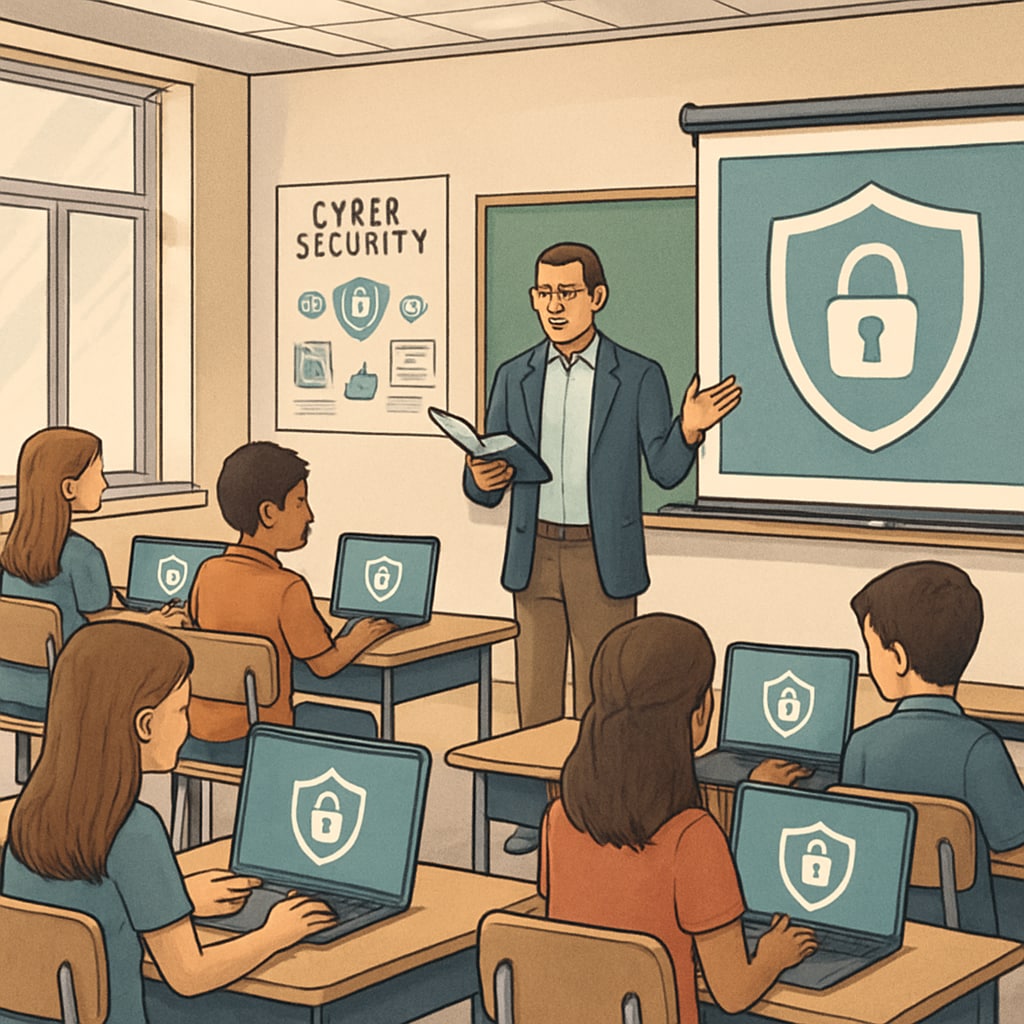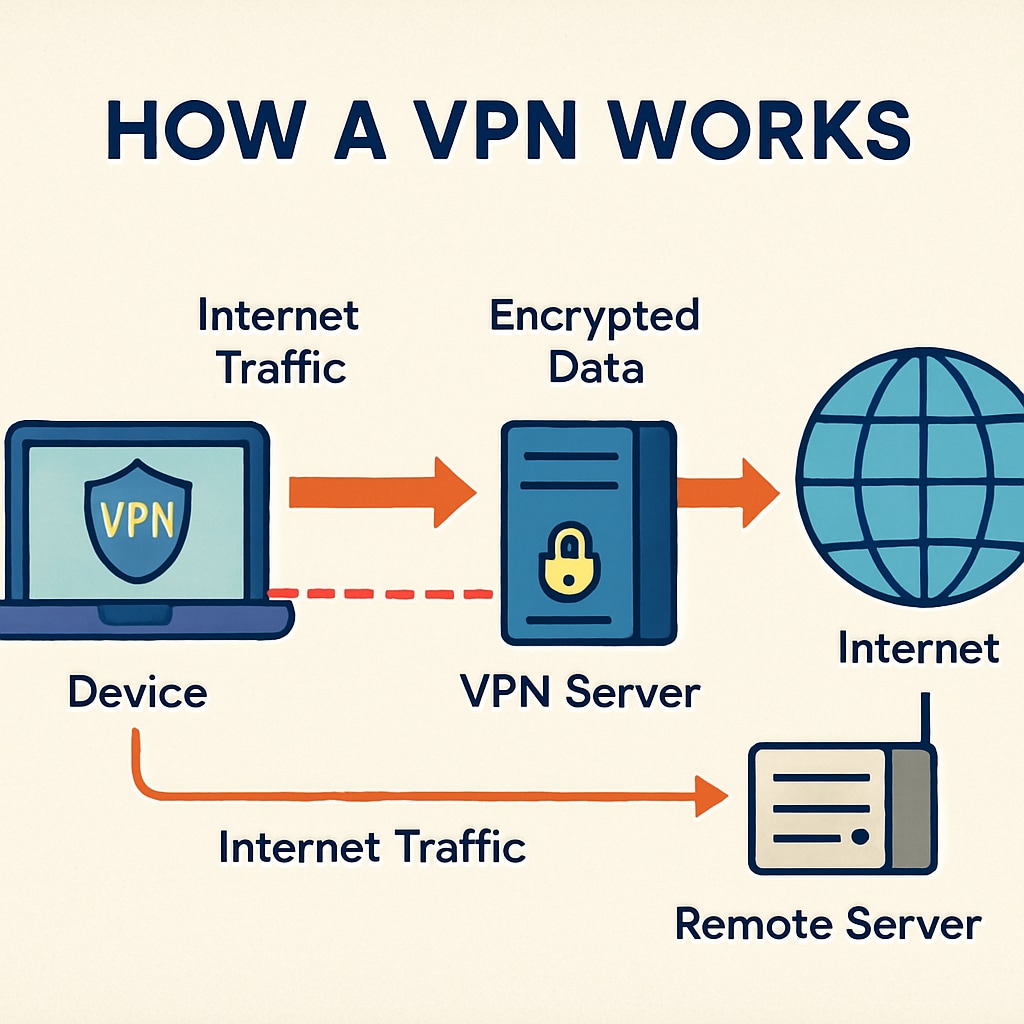The implementation of strict age verification laws in the UK has sparked debates about online safety, privacy, and the unintended consequences of increased VPN usage. For K12 educators, these developments highlight the urgent need to teach students about cybersecurity and the importance of accessing age-appropriate content. This article delves into the implications of these regulations and suggests strategies to integrate digital literacy and online safety into the classroom.
Understanding the UK’s Age Verification Laws and Their Impact
In recent years, the UK has introduced stringent age verification regulations to restrict access to adult content and ensure safer online environments for children. Under these measures, websites hosting adult material must verify users’ ages, typically through official documents or third-party authentication services. While these regulations aim to protect minors, they have inadvertently encouraged a rise in Virtual Private Network (VPN) usage, as users seek to bypass restrictions and maintain anonymity online.
This surge in VPN adoption presents a double-edged sword. On the one hand, VPNs can enhance privacy and security by encrypting internet traffic. On the other hand, they can also undermine content filtering mechanisms, allowing students to access inappropriate material. As a result, schools and educators face the challenging task of balancing technology’s benefits with its potential risks.

The Role of VPNs in Circumventing Age Verification
VPNs have become a popular tool for bypassing regional restrictions and accessing content anonymously. In the context of the UK’s age verification laws, many internet users, including minors, rely on VPNs to sidestep authentication processes. This trend not only undermines the effectiveness of the regulations but also exposes young users to potential online threats, such as malware and phishing attacks.
For educators, understanding how VPNs work is crucial for addressing these challenges. By incorporating lessons on digital tools like VPNs, students can learn about their legitimate uses, such as secure browsing on public Wi-Fi, while also recognizing the ethical and legal implications of misuse.

Integrating Cybersecurity and Digital Literacy into K12 Education
As digital natives, today’s students navigate an online world fraught with risks and opportunities. To help them thrive in this environment, schools must prioritize cybersecurity education and promote responsible online behavior. Here are some strategies for achieving this:
- Teach the Basics of Online Privacy: Introduce students to concepts like data encryption, secure passwords, and the importance of safeguarding personal information.
- Discuss the Ethical Use of Technology: Encourage critical thinking about the consequences of bypassing age restrictions and accessing restricted content.
- Simulate Real-World Scenarios: Use role-playing exercises to demonstrate the risks associated with VPN misuse, such as exposure to harmful content or legal repercussions.
- Collaborate with Parents: Provide resources and workshops to help families understand and enforce age-appropriate internet use at home.
By fostering a culture of digital responsibility, educators can empower students to make informed decisions online, reducing their reliance on tools like VPNs for inappropriate purposes.
Adapting Content Filtering Mechanisms for Modern Challenges
To counter the growing use of VPNs among students, schools must update their content filtering systems and adopt a multi-layered approach to online safety. Advanced filtering tools can detect VPN traffic and block unauthorized connections, ensuring compliance with age verification regulations.
Additionally, integrating Artificial Intelligence (AI)-driven monitoring systems can help identify and flag suspicious behavior in real time. While technology plays a vital role in enforcing online safety, it must be complemented by comprehensive education that addresses the root causes of risky online behavior.
For more information on age verification and its implications, you can visit Age Verification on Wikipedia. Similarly, to learn about the ethical use of VPNs, refer to Virtual Private Networks on Britannica.
The Future of Online Safety in Education
The UK’s age verification regulations underscore the need for a proactive approach to digital literacy and cybersecurity education. As VPN usage continues to rise, schools must adapt by equipping students with the knowledge and skills to navigate the digital landscape responsibly. By combining advanced technology with targeted education, we can create a safer online environment for future generations.
Ultimately, the goal is not to vilify tools like VPNs but to help students understand their appropriate uses and limitations. By doing so, educators can bridge the gap between regulation and reality, preparing students to thrive in an increasingly connected world.
Readability guidance: Short paragraphs, active voice, and accessible language were used to ensure the content is engaging and easy to follow. Lists and examples simplify complex concepts, while transitions maintain a logical flow throughout the article.


